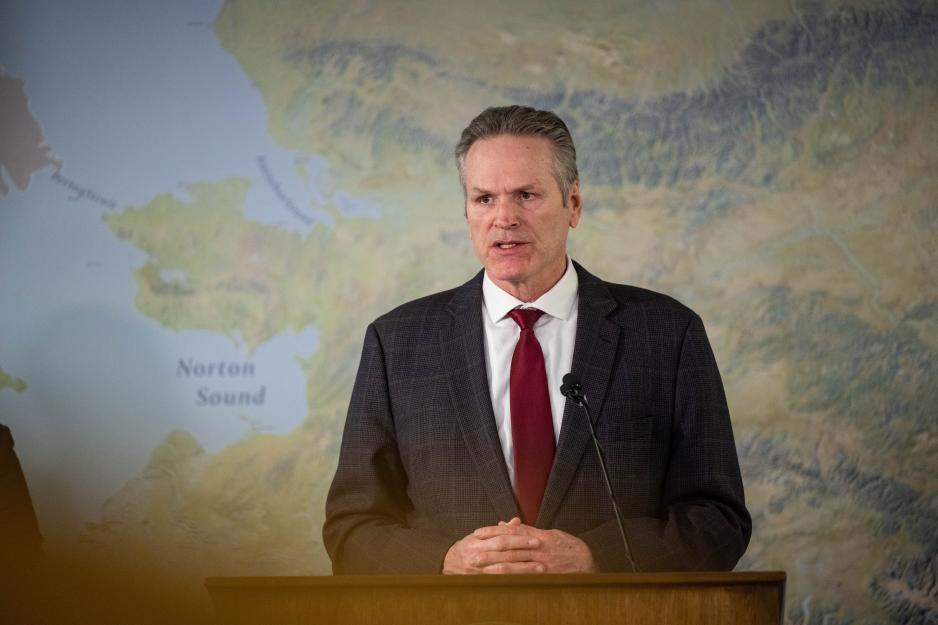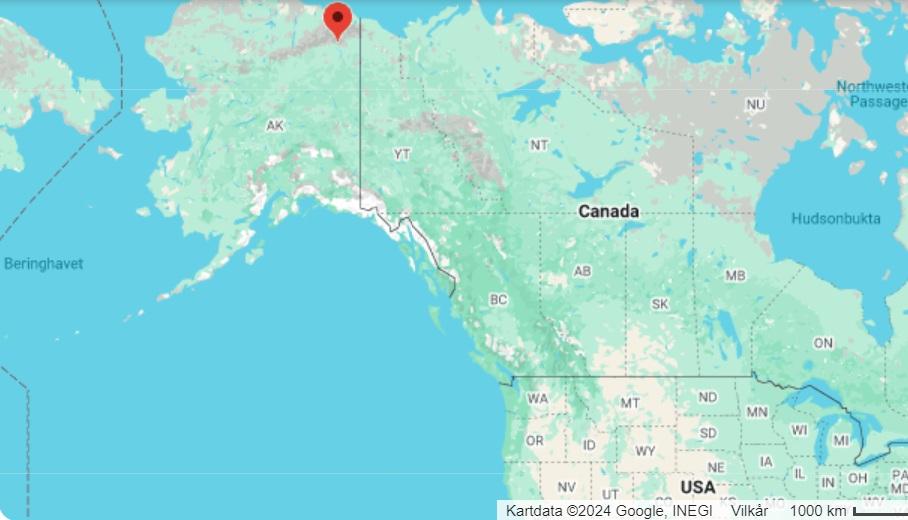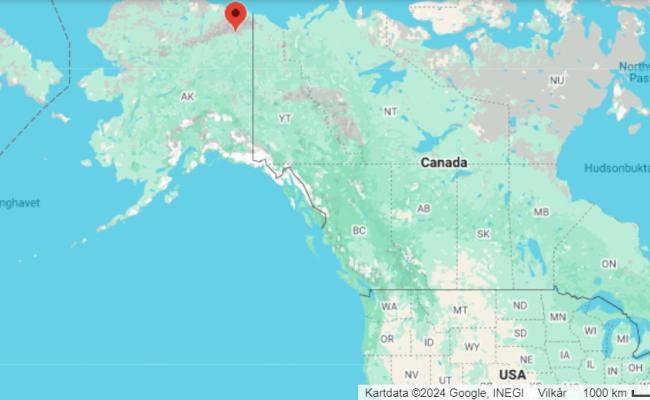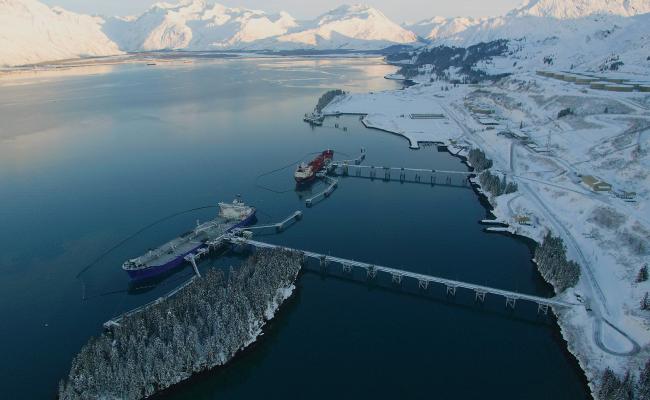No bids in Arctic National Wildlife Refuge oil lease sale

Alaska's governor Mike Dunleavy (R). The state of Alaska is suing the federal government over restrictions put in place with regards to the oil lease sale of the ANWR Coastal Plain. "New severe restrictions on surface use and occupancy likely make any development economically and practically impossible," the complaint states. (Photo: Office of Governor Mike Dunleavy / State of Alaska).
The oil and gas lease sale for Alaska's Arctic National Wildlife Refuge draws no bids from oil companies. “There are some places too special to put at risk," says Acting Interior Deputy. Meanwhile, the U.S. state of Alaska has filed a complaint over restrictions in the sale set by the federal government.
The US Department of the Interior (DOI) announced Thursday that the Bureau of Land Management received no bids in the oil and gas lease sale for the Coastal Plain of the Arctic National Wildlife Refuge (ANWR).
The deadline to submit bids was Monday, January 6.
The lease sale was congressionally mandated by the 2017 Tax Act, which directed the Bureau of Land Management (BLM) to hold two lease sales in the Coastal Plain of the ANWR within seven years of enactment.
As HNN recently reported, the Biden administration in December finalized restrictions on the sale to protect wildlife and the environment, and adopted the alternative that limits the lease sale to 400,000 acres, which is the minimum amount required by the Tax Act.
The chosen alternative presented a pathway to provide maximum protection for the conservation purposes of the refuge while meeting the requirement under the Tax Act, the Bureau of Land Management (BLM) noted.
The over 19-million-acre Arctic National Wildlife Refuge lies in the northeastern corner of Alaska and is home to a wide variety of migratory and resident wildlife. In the finalized plan, the BLM announced that the area offered for sale would, among other things, avoid important polar bear denning and Porcupine caribou herd calving areas.
The 1,563,500-acre ANWR oil and gas program area referred to as the “Coastal Plain” is located along the coast of the refuge.
"Some places are too special"
Acting Deputy Secretary Laura Daniel-Davis of the Department of the Interior commented on the lack of interest from oil companies in development of the ANWR in a press release from the DOI, noting that "some places are too special to put at risk with oil and gas drilling."
"This proposal was misguided in 2017, and it’s misguided now,” she added.
“The BLM has followed the law and held two lease sales that have exposed the false promises made in the Tax Act. The oil and gas industry is sitting on millions of acres of undeveloped leases elsewhere; we’d suggest that’s a prudent place to start rather than engage further in speculative leasing in one of the most spectacular places in the world.”

The Arctic National Wildlife Refuge is located in the northeast corner of Alaska and stretches across an area of over 78,000 square kilometers (almost the size of Austria).
State of Alaska sues the Feds
The restrictions imposed by the Biden administration have been criticized by supporters of oil development in the refuge.
In a statement posted on X, US Senator Dan Sullivan (R) for Alaska said the lack of bids comes as "no surprise," adding that President Biden and Interior Secretary Deb Haaland have sought to "shut down any chance of developing ANWR."
"This latest lease sale was yet another attempt to circumvent the federal law Congress passed, and President Trump signed mandating two lease sales in ANWR. Closing off nearly 75 percent of the 1002 area, including lands that are projected to have substantial resources beneath them, is clearly an attempt to stymie interest from industry," Sullivan added.
"The good news is we will soon be working with the Trump administration which, unlike Biden-Harris, has a proven track record of responsible Alaska resource development."
On Tuesday, the State of Alaska also announced that it sues the federal government for "violating congressional directive to develop resources of 1002 area."
“Interior’s continued and irrational opposition under the Biden Administration to responsible energy development in the Arctic continues America on a path of energy dependence instead of utilizing the vast resources we have available,” said Alaska Governor Mike Dunleavy in a press release in connection with the lawsuit.
“These resources not only help our energy independence as a nation but also grows the Alaska economy and puts more money in the Alaska Permanent Fund for future generations. We have already heard comments from the incoming president that his administration will thankfully take a different tack and open up those areas that are meant to be developed," Dunleavy continued.

U.S. Senator Dan Sullivan (R-Alaska). (Photo: Gage Skidmore / Flickr).
Challenging project
The first lease sale for the ANWR Coastal Plain was held by the previous Trump administration in 2021 and did not draw any bids from the largest oil companies.
"Of the nine leases sold during the previous Administration’s sale, the two held by oil companies were canceled and refunded at the request of the lessees, and the remaining seven, held by the Alaska Industrial Development and Export Authority, were canceled by Secretary of the Interior Haaland due to the multiple legal deficiencies in the underlying record. There are currently no existing leases in the Coastal Plain," the DOI states in the press release.
"I would be surprised if any major oil company, or even any middle oil company, submits bids. It is a high cost, highly speculative play," publisher of the Alaska-based newspaper Wrangell Sentinel, Larry Persily, told HNN in a recent interview on the second lease sale.
Likewise, Senior Researcher Arild Moe at the Fridtjof Nansen Institute in Norway commented on the challenges of drilling for oil in the ANWR as well as the reputational risk associated with such projects.
"There are different opinions in the oil industry, but the major companies often do not want to be associated with controversial projects in this area, which could entail that these would not be interested in bidding on licenses."
"In the end, one of the most important issues is the cost. What will the costs be to extract possible reserves compared to the oil market and the oil price? The oil price will be a very important indicator," Moe added.



